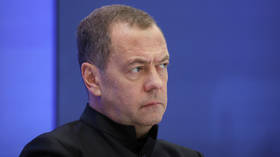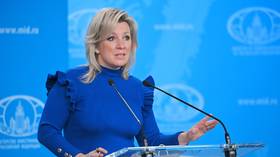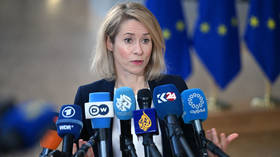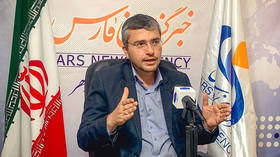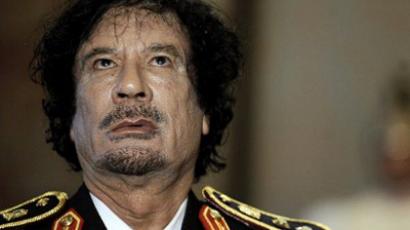Enemy at the gates? Libyans storm NTC headquarters
Some 200 Libyan protesters stormed the headquarters of the country’s transitional government on Saturday in a show of frustration with the slow pace of national reform. But will their calls for post-Gaddafi transparency fall on deaf ears?
Two weeks of protests in the city of Benghazi – the heart of the uprising against Muammar Gaddafi last February – came to a head when protestors used grenades to blow the gates off the National Transitional Council (NTC) compound housing the interim government.The protesters, who demand a meeting with the country’s interim leaders, shouted through the windows at NTC members who could be seen pacing inside of the building, the Associated Press reports.The demonstrators had previously set up a small encampment outside the compound as they called for greater justice and transparency from Libya’s new leadership.But tensions mounted when the NTC passed a series of laws determining how parliamentary elections would be conducted this June – making no mention of how seats in the new legislature would be divvied out between different cities and regions.Seeing that the allocation of legislative seats will ultimately shape the distribution of the country’s vast oil wealth, many demonstrators contend the NTC is not seeking to fulfill the people’s long-standing democratic aspirations.“The election laws have not been approved by thousands of Libyans, and do not honor those who died for our freedom,” said Tamer al-Jahani, a lawyer taking part in the protest. “We don’t want to replace one tyrant with another,” AP cites him as saying.While some were centered on the future of the country’s political institutions, others were focused on the plight of those anti-Gaddafi forces injured during the war. However, calls for greater freedoms belie the actual situation on the ground in post-Gaddafi Libya.According to a November report by the UN Secretary General, at least 7,000 men, women and children were illegally detained by rebel militias in Libya. Many of them are being held in prisons outside of NTC control, and have been subjected to torture and other systematic forms of mistreatment.Clashes between rival militia factions have also become an increasingly common sight in the streets of Tripoli.Coupled with warnings from British officials last month that senior level al-Qaeda leaders have been making their way to Libya to capitalize on an ever-expanding security vacuum, the developments could signal a potentially explosive crisis brewing in the country.
Radio host and author Stephen Lendman believes the crowds are unhappy with the new, Western-backed government. “A couple of hundred former rebel fighters stormed the Parliament in Benghazi," he says. "They complain they are not given aid properly, they are not treated properly. The new election was drawn up, and the people were promised they would have a say, but the people have had no say whatsoever – everything has been secretive. And the NTC government – let’s face it – is the puppet of Western governments serving Western interests, having absolutely no interest in ordinary Libyans.”
It's Iraq all over again, says international consultant Adrian Salbuchi, with the flag of democracy brought in to guard Western geopolitical interests and pump oil while the "invaded" nation’s needs are ignored.The mission of the ruling National Transitional Council is not, Salbuchi says, "to improve life. Libya already had a high standard of living under Gaddafi. What Libya does have is ninth-largest global oil reserve, and the top oil reserve in Africa. And that is what the National Transitional Council is being supported for. They promote Western oil companies, Western financial interest in Libya,” he told RT.


